How To Stimulate Hair Growth: 14 Tips For Stronger Hair
Simple, easy, and the most effective ways to promote healthy hair growth.
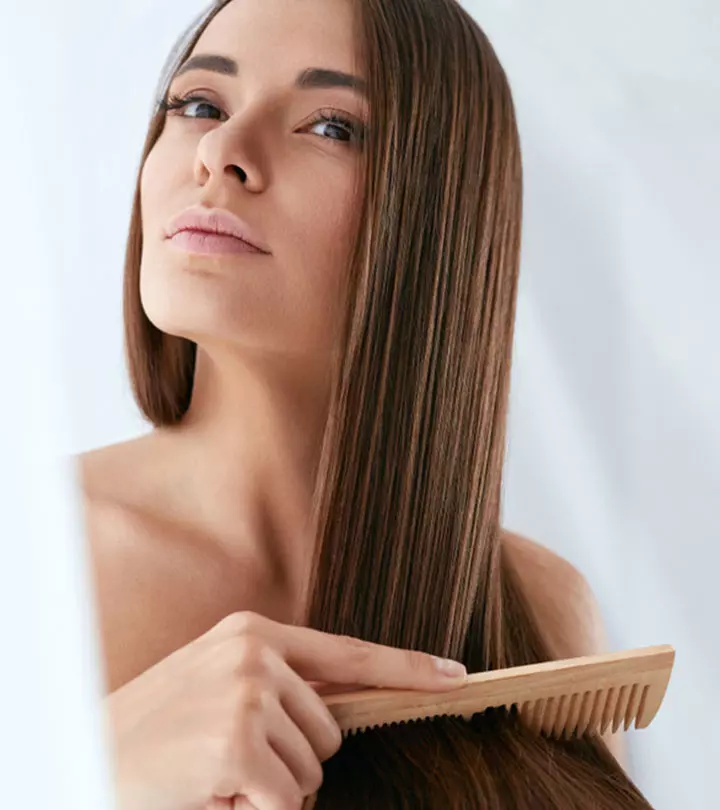
Image: Shutterstock
The agony is insufferable when all you want is long hair, but they refuse to grow beyond shoulder length! It is then that questions, such as ‘What helps with hair growth?’ and ‘How to increase hair growth?’ become natural. Here, we have collated some effective home remedies to stimulate hair growth. Of course, you should avoid harsh chemical hair products and adopt a healthy lifestyle. Read on to know more tips to stimulate hair growth.
In This Article
Understanding The Hair Growth Process
Your hair grows from the follicle or root located under the skin. The blood vessels at the base of the follicle feed the hair and provide it with nourishment. The four stages of the hair growth process are anagen, catageni A brief transition stage in the hair growth cycle that lasts 10-20 days where the hair growth stops. , telogeni The resting phase observed in the hair growth cycle that lasts about 100 days when the hair follicle is completely at rest. , and exogeni The hair-shedding phase in the hair growth cycle, that lasts about 2-5 months when 50-100 strands of hair are lost per day. (1).Your hair could be at any of these stages of the growth cycle. The anagen phase (hair growth phase) becomes shorter with time, causing hair to grow thinner and weaker at the end of each cycle. The hair growth process depends a lot on genetics (2). Dr. Harpreet Kalra, Hair Transplant Surgeon, says, “On average, hair grows at around half an inch per month or 6 inches per year.”
Key Takeaways
- Spilt ends tend to stop hair growth. So, to prevent this, trim your hair in regular intervals.
- Scalp massage with essential oils helps improve blood circulation to hair follicles, contributing to stronger strands.
- Your hairstyle may sometimes spell doom for your tresses. Avoid tying your hair in tight buns, pigtails, or braids.
- Eating right and sufficiently hydrating your body is crucial. Choose the right hair products and reduce hair-washing frequency.
Healthy Hair Growth Tips
Though genetics play an important role in your hair health, the right care tips may keep the hair from getting weaker at the end of each hair growth cycle (and possibly stimulate hair growth too). Anecdotal evidence suggests the following tips may help stimulate hair growth in individuals.

1. Massage Your Scalp
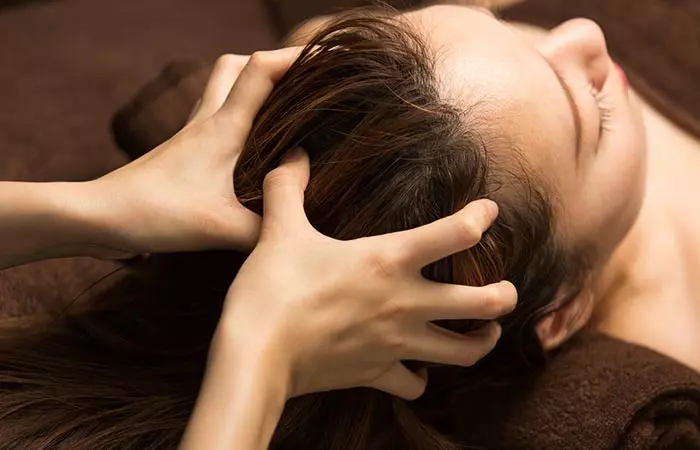
Proper scalp blood circulation is critical for healthy hair. A scalp massage stimulates the hair follicles and increases blood flow to them. This supplies more nutrients to the developing follicle, promoting hair growth (3).
A study conducted on 340 participants found that a daily scalp massage effort of 11 to 20 minutes for more than 6 months resulted in hair loss stabilization in 119 participants (37.3%) and slight or significant hair regrowth in 101 participants (31.7%).
You can massage your scalp in two methods: the essential oil massage or the inversion method.
Essential Oil Massage
- You can use either lemon, tea tree, or peppermint oils.
- Heat the oil until it is warm.
- Apply to your scalp and massage for 20 minutes.
- Leave the oil on for 30 minutes.
- Rinse your hair
 Quick Tip
Quick TipInversion method
- Sit on a chair and flip your hair over.
- Massage your scalp for 5 minutes with your fingertips.
- Rub your entire scalp in a circular motion.
AliOlive, a haircare blogger, explains how scalp massages improve hair growth. She writes, “I really can’t stress this point enough. Scalp stimulation is so important, it increases circulation and therefore your scalp can receive more nutrients and oxygen, this makes your hair follicles super happy and they will produce hair at a quicker rate (i).”
 Quick Tip
Quick Tip2. Trim Your Hair Ends
Split ends prevent the development of healthy hair. They make individual hair strands get entangled with each other and fall out. Regularly trimming your hair promotes hair health.
3. Use Conditioner More Often Than Shampoo
You lose some natural scalp oils (that keep your hair soft) every time you shampoo. Excessive shampooing may dry and weaken your hair. Try not to shampoo more than twice a week. Use a conditioner after every hair wash. A conditioner repairs any damage to your hair and makes it stronger. This is especially true for protein-based conditioners. They contain tiny protein fragments called hydrolyzed proteins that can penetrate the hair shaft and bind to the keratin inside, replacing lost proteins and restoring strength (4). Certified Trichologisti A paramedical professional who applies holistic as well as medical approaches to treat scalp and hair conditions. Shayna Simone suggests, If you have an oily scalp, washing your hair every day with the right shampoo will not cause you to lose your hair.If you have normal to dry scalp, washing your hair 1-2 times a week is recommended.”
 Quick Tip
Quick Tip4. Use The Egg Mask Treatment
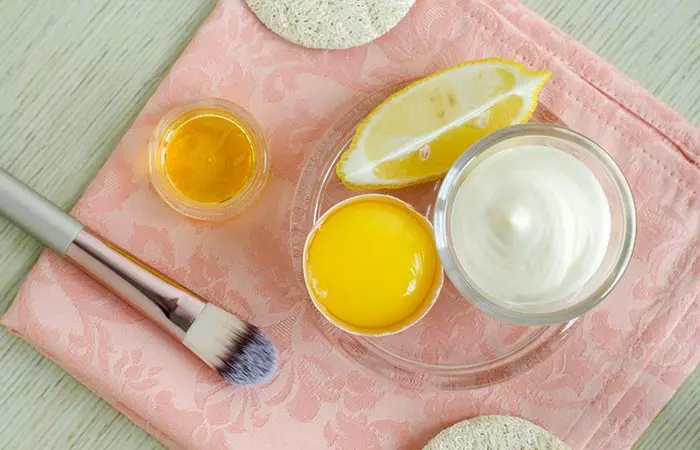
Eggs are the answer if you are wondering how to promote hair growth. Your hair is primarily made of a protein called keratin (5). Eggs are rich in protein and may help strengthen your hair follicles (6). The moisture in the egg mask also protects your hair from dryness.
How to make your DIY egg mask
- Whisk an egg yolk in a bowl until you get a smooth consistency.
- Add yogurt to it until the mixture is creamy in texture.
- Apply this mixture to wet hair and leave it on for 20 minutes.
- Wash your hair with plain water.
You may also include fish, poultry, seafood, whole grains, seeds, and nuts in your diet.
5. Avoid Putting Your Hair Into A Tight Bun
You could either try other hairstyles or make a loose bun with your hair. Having a tight bun can pull on your hair strands and damage them. Other hairstyles like braids, cornrows, pigtails, and ponytails spell disaster for your hair if applied tightly. These hairstyles stress your hair strands and may lead to traction alopecia, a type of hair loss caused by constant pulling on the hair roots (7).
Also, change your hairstyle regularly to allow your hair to recover. Mix and match between buns, ponytails, pigtails, or cornrows. Do not wear weaves for long periods. Keep an eye on any early signs of hair loss.
6. Consume Omega-3 Fatty Acids

Omega-3 fatty acids may fight inflammation and prevent the associated hair loss. Research suggests that certain immune cells called inflammatory T-cells may be linked to male and female pattern hair loss. When these T-cells infiltrate the hair follicle and cause inflammation, it can disrupt the normal hair growth cycle, leading to hair thinning and eventual hair loss (8). This is where omega-3 fatty acids and their anti-inflammatory properties come into play to reduce inflammation (9). They also boost scalp health. You can consume salmon or mackerel fish or flaxseeds and walnuts. Taking omega-3 supplements from a reputed seller is also a good idea. Mackerel-derived fish oil was found to promote hair growth in a study (10).
7. Increase Intake Of Vitamin C
Vitamin C may help reduce hair loss associated with iron deficiency. The vitamin boosts iron absorption (11). Vitamin C is also an effective antioxidant that helps fight free radicals to prevent oxidative stress. Research suggests that oxidative stress may damage hair follicles and lead to different types of hair loss like male pattern baldness and alopecia areata (12). So, consuming more fruits and vegetables may help fight this, encouraging hair growth. Be wary of supplements; take only after consulting your health care provider. Excess of vitamins A and E and selenium have been linked to hair loss (12).
8. Get More Biotin
Biotin is a nutrient believed to support healthy skin and hair, which is why many people take biotin supplements to help with hair loss. However, a study found that only about 38% of women experiencing hair loss actually had low biotin levels. So, while biotin deficiency may cause hair loss and thinning, this may not always be the case. It is best to take biotin supplements only if your healthcare provider has confirmed a deficiency and ruled out other potential causes of hair loss. (13). You may also include beef liver or soybeans in your diet for adequate biotin.
9. Stay Hydrated

Dehydration can affect hair growth. Let us understand how! We all know that proper hydration is important for various body functions like temperature regulation and kidney function (14). Due to this, when you are dehydrated, your body prioritizes the use of remaining water for these vital functions. This leaves less water available for the hair follicles, resulting in dry, brittle hair more prone to breakage. So, it is important to drink adequate water and other fluids during the day.
10. Avoid Trauma To Your Hair
Avoid excessive manipulation or using anything too harsh on the hair that may cause trauma, leading to damage and hair loss. Here are a few tips you can keep in mind:
- Avoid chemical-based shampoos. Use a gentle shampoo instead.
- Use a leave-in conditioner or detangler. It will stop breakage, frizz, and split ends.
- Spend less time blow-drying your hair. You can dry your hair faster with a microfiber towel.
- Avoid hot oil treatments because the excess heat may damage hair too.
- Stop DIY home treatments like relaxing, chemical straightening, perming, and coloring. Leave these to a salon professional who can apply the right amount of product to prevent long-term hair damage.
- Minimize the use of hot combs, flat irons, or curling irons. Save them for special occasions.
- Stop playfully twisting or pulling your hair. This habit can damage your hair.
11. Brush Your Hair Gently
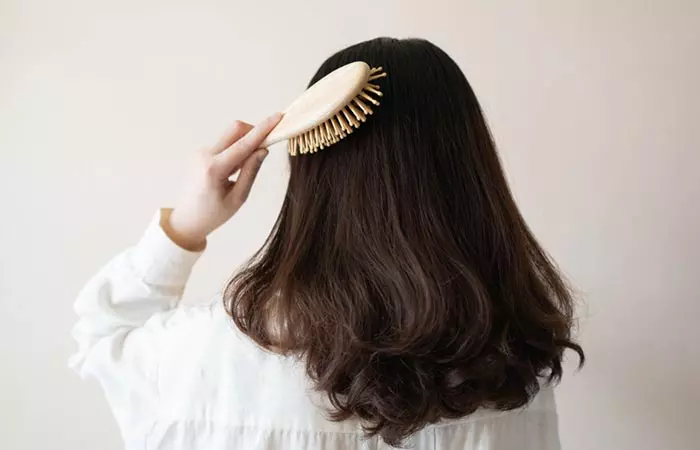
Be gentle with your hair while detangling the knots. Harshly brushing your hair can cause the strands to break off and split. Your choice of brush is also important. To ensure minimal breakage, use the following types of brushes for detangling knots:
- A wide-tooth comb
- A detangling brush
- A paddle brush with round bristles
Detangle your hair knots before a shower and not after it. Go from the tips to the hair roots.
12. Protect Your Hair While You Sleep
During sleep, the friction between hair strands and the pillowcase may cause tangling, frizz, and breakage, leading to split ends. To prevent this, you may use protective measures such as using silk or satin pillowcases, tying the hair in a loose braid or bun with satin scrunchies, or using a silk or satin bonnet. This will reduce friction and help retain the hair’s moisture, ensuring it stays smooth, strong, and damage-free. Additionally, make sure that your hair is completely dried before going to bed, as damp hair may damage the hair follicles and increase the risk of hair breakage and fall.
13. Avoid Smoking
Nicotine in cigarette smoke causes blood vessels in the skin to constrict, reducing blood flow to hair follicles. This can impair hair growth by limiting the nutrients and oxygen that reach the follicles. Smoking may also generate harmful free radicals that cause oxidative stress. It can lead to inflammation, cell damage, and disruption of the hair growth cycle. Free radicals may also interact with DNA, causing mutations and breaking DNA strands. This damage to the DNA of the hair follicles may lead to hair loss. Apart from this, smoking may also affect hormone levels, potentially increasing androgen (male hormone) levels, which may cause hair thinning, particularly in women (15). Therefore, it is best to quit smoking to promote hair growth.
14. Manage Stress Levels
Chronic stress increases cortisol (stress hormone) levels. Research suggests that this leads to hair follicles remaining in the resting phase for extended periods, preventing new hair growth. Therefore, you should keep stress in check to support healthy hair growth (16). You can do so by finding ways to relax and unwind. Try incorporating stress-relief activities like yoga, meditation, or regular exercise into your routine. These practices not only improve your overall well-being but also help promote stronger, healthier hair.
Stimulating Hair Growth With Food – What To Avoid And What To Eat
If you have a history of hair loss in your family and usually have an unhealthy diet, you can experience greater hair loss. You need the right diet to stimulate hair growth, which starts by cutting down the following foods:
Foods To Avoid
- Simple Carbohydrates: Simple Carbohydrates are found in high-sugar foods like white flour, bread, ice cream, biscuits, and cakes. These foods are quickly broken down into glucose, leading to rapid spikes in blood sugar (17). This triggers a surge in insulin, a hormone that helps regulate glucose. Over time, consistently high insulin levels can increase the production of androgens (male hormones), which are linked to hair thinning and hair loss (18) (19). Start a diet rich in complex carbohydrates like whole grains and beans.
- Sweet Cereals: These cereals have a high glycemic indexi A rating system for foods containing carbohydrates that shows how quickly a given food item affects our blood sugar levels by itself. and spike blood sugar levels. This, again, may increase insulin and androgens as mentioned above, leading to hair loss. They may also contain artificial coloring agents that may harm your overall health (20).
- Greasy Foods: Fried, greasy foods add to your waistline and may also lead to hair loss. Research suggests that obesity, particularly from a high-fat diet, causes stress to hair follicle stem cells, which are responsible for growing hair (21).
Foods To Eat
- Eggs, Dairy, And Lentils: The protein and biotin in these foods may stimulate hair growth (12).
- Legumes, Seeds, Nuts, And Oysters: The zinc in these foods may boost hair growth. Zinc deficiency has been associated with hair loss (22).
- Salmon And Other Fish: Salmon is rich in omega-3 fatty acids and vitamin D. These nutrients may potentially boost hair health (12).
How To Stimulate Hair Growth With Lifestyle Changes
Your lifestyle also affects your hair growth. Like unhealthy food, an unhealthy lifestyle impairs hair growth. So, how to grow hair naturally with lifestyle changes? You need to switch to a healthier lifestyle. Here are some lifestyle changes for stimulating hair growth.
- Reduce Hair Washing Frequency: Frequent washing may cause your hair to go brittle and dry, especially if you have dry or damaged hair. Hence, shampoo only twice a week. You may increase this washing frequency if you have oily hair or you sweat a lot due to activities like sports. Certified Trichologist Shayna Simone adds, “Keeping your hair clean and removing excess product, oil, and buildup can actually improve your hair and the health of your scalp. Healthy hair can only reside in a healthy scalp.”
- Use Conditioners and Volumizers: This helps restore the natural scalp oils you lose while shampooing.
- Choose The Right Hair Care Products: Use gentler and natural hair care products. Avoid products with chemicals and other irritants (like parabens or sulfates). Dr.Harpreet Kalra, Hair Transplant Surgeon, says, “It is not the act of washing your hair that affects hair growth; rather, the chemicals in the shampoo will contribute to the health of your hair and scalp and if those are compatible with you.”
- Check Your Medications: Ask your doctor if your medications cause hair loss. Get recommendations for any better alternatives.
Infographic: Exercises And Yoga Asanas To Stimulate Hair Growth
Yoga asanas and exercises have a wide range of health advantages. They have been helpful not only for protecting one’s mental wellness but also for addressing skin and hair problems. Check out the infographic below to learn some of them that will help reduce hair loss and improve your hair health.
Some thing wrong with infographic shortcode. please verify shortcode syntax
If you want to stimulate hair growth, you must patiently stick to the hair regrowth plan you are following. Keep in mind that it may take several months for the therapies to show benefits. You can be as creative as you want with the treatment techniques and mix them up as much as possible. Consume foods that encourage hair development, such as foods rich in proteins, vitamins, and other nutrients. Avoid using chemical-based hair products and bleaches on your hair since they can harm it. Long-term hair health can be improved with the appropriate nutritional and lifestyle practices. Remember the tips in this article, and we are confident that you will thank yourself later.
Frequently Asked Questions
During what season does human hair grow the fastest?
Hair growth is at its peak during summer.
Does hair growth slow when your hair gets longer?
No. The length of your hair does not affect the rate of hair growth.
Does curd stimulate hair growth fast?
Yes, anecdotal evidence suggests that the biotin and zinc content in curd can help boost natural hair growth. Therefore, including curd in your hair care routine is one of the effective home remedies for hair growth.
Does milk stimulate hair growth?
Yes, milk is a rich source of proteins like casein and lactoferrin and other nutrients like vitamin B3. Research suggests that these may help promote healthy hair growth (23).
Transform thin hair into thick and long hair in just 30 days. Apply rice water daily and watch your hair grow twice as fast. Check out this video and get ready for beautiful, healthy hair!
Personal Experience: Source
StyleCraze's articles are interwoven with authentic personal narratives that provide depth and resonance to our content. Below are the sources of the personal accounts referenced in this article.
i. Hair Growth;https://togreatlengths.wordpress.com/hair-growth/
References
Articles on StyleCraze are backed by verified information from peer-reviewed and academic research papers, reputed organizations, research institutions, and medical associations to ensure accuracy and relevance. Read our editorial policy to learn more.
- Physiology, hair
https://www.ncbi.nlm.nih.gov/books/NBK499948/ - The genetics of human hair growth
https://pubmed.ncbi.nlm.nih.gov/5173315/ - Integrative and mechanistic approach to the hair growth cycle and hair loss
https://pmc.ncbi.nlm.nih.gov/articles/PMC9917549/ - On hair care physicochemistry: From structure and degradation to novel biobased conditioning agents
https://pmc.ncbi.nlm.nih.gov/articles/PMC9921463/ - The structure of people’s hair
https://pmc.ncbi.nlm.nih.gov/articles/PMC4201279/ - The golden egg: Nutritional value, bioactivities, and emerging benefits for human health
https://pmc.ncbi.nlm.nih.gov/articles/PMC6470839/ - Traction alopecia
https://www.ncbi.nlm.nih.gov/sites/books/NBK470434/ - The inflammatory aspect of male and female pattern hair loss
https://pmc.ncbi.nlm.nih.gov/articles/PMC7667670/ - Influence of nutrition, food supplements and lifestyle in hair disorders
https://pmc.ncbi.nlm.nih.gov/articles/PMC9650738/ - Mackerel-derived fermented fish oil promotes hair growth by anagen-stimulating pathways
https://pmc.ncbi.nlm.nih.gov/articles/PMC6164340/# - The efficacy and safety of vitamin C for iron supplementation in adult patients with iron deficiency anemia
https://pmc.ncbi.nlm.nih.gov/articles/PMC7607440/# - Diet and hair loss: effects of nutrient deficiency and supplement use
https://pmc.ncbi.nlm.nih.gov/articles/PMC5315033/# - Serum biotin levels in women complaining of hair loss
https://pmc.ncbi.nlm.nih.gov/articles/PMC4989391/ - Water hydration and health
https://pmc.ncbi.nlm.nih.gov/articles/PMC2908954/ - Role of Smoking in Androgenetic Alopecia: A Systematic Review
https://pmc.ncbi.nlm.nih.gov/articles/PMC9069908/ - How stress causes hair loss
https://www.nih.gov/news-events/nih-research-matters/how-stress-causes-hair-loss - Physiology carbohydrates
https://www.ncbi.nlm.nih.gov/books/NBK459280/ - The interplay between androgens and the immune response in polycystic ovary syndrome
https://pmc.ncbi.nlm.nih.gov/articles/PMC10105935/ - Androgens and alopecia
https://pubmed.ncbi.nlm.nih.gov/12573818/ - Synthetic colors in food: A warning for children’s health
https://pmc.ncbi.nlm.nih.gov/articles/PMC11203549/ - Obesity accelerates hair thinning by stem cell-centric converging mechanism
https://pmc.ncbi.nlm.nih.gov/articles/PMC9600322/ - Serum zinc concentration in patients with alopecia areata
https://pmc.ncbi.nlm.nih.gov/articles/PMC10561101/ - Milk Proteins—Their biological activities and use in cosmetics and dermatology
https://pmc.ncbi.nlm.nih.gov/articles/PMC8197926/
Read full bio of Dr. Vindhya L Veerula
- Dr. Harpreet Kalra, MD, is an established and respected surgeon who has conducted many hair transplant procedures. He earned his medical degree from Lugansk Medical University and is currently working at Harley Street Hair Transplant Clinics.
 Dr. Harpreet Kalra, MD, is an established and respected surgeon who has conducted many hair transplant procedures. He earned his medical degree from Lugansk Medical University and is currently working at Harley Street Hair Transplant Clinics.
Dr. Harpreet Kalra, MD, is an established and respected surgeon who has conducted many hair transplant procedures. He earned his medical degree from Lugansk Medical University and is currently working at Harley Street Hair Transplant Clinics. - Shayna Simone is a Certified Trichologist with the World Trichology Society and a Hair Loss Practitioner with the International Associations of Trichologists. She is the founder of Amora Luxe Hair Restoration Center in the Metro Detroit (MI) Area and has over 9 years of experience in the hair and beauty industry. She specializes in the treatment and management of various forms of hair loss, hair thinning, and scalp problems.
 Shayna Simone is a Certified Trichologist with the World Trichology Society and a Hair Loss Practitioner with the International Associations of Trichologists. She is the founder of Amora Luxe Hair Restoration Center in the Metro Detroit (MI) Area and has over 9 years of experience in the hair and beauty industry. She specializes in the treatment and management of various forms of hair loss, hair thinning, and scalp problems.
Shayna Simone is a Certified Trichologist with the World Trichology Society and a Hair Loss Practitioner with the International Associations of Trichologists. She is the founder of Amora Luxe Hair Restoration Center in the Metro Detroit (MI) Area and has over 9 years of experience in the hair and beauty industry. She specializes in the treatment and management of various forms of hair loss, hair thinning, and scalp problems.
Read full bio of Annie Jangam
Read full bio of Anjali Sayee
Read full bio of Monomita Chakraborty








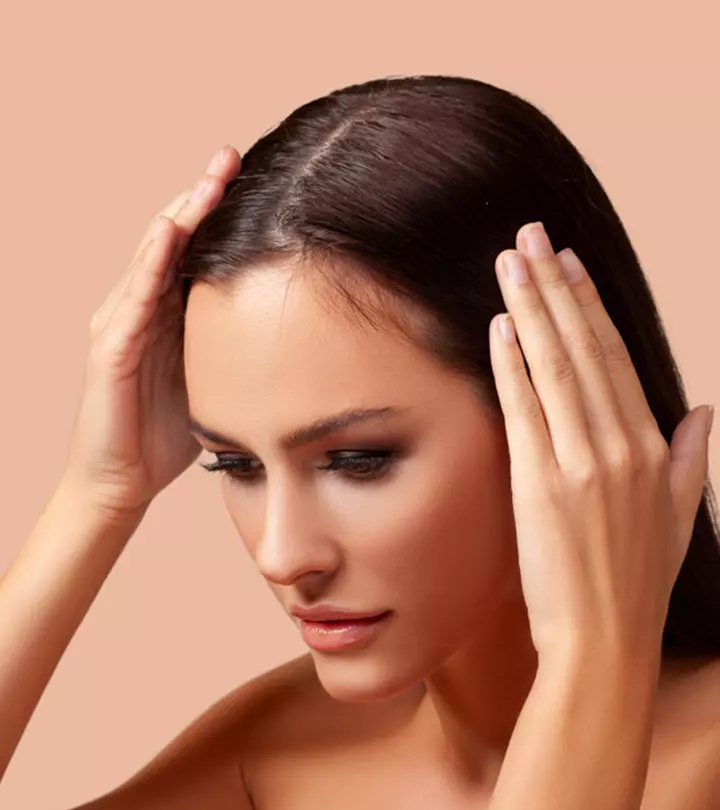
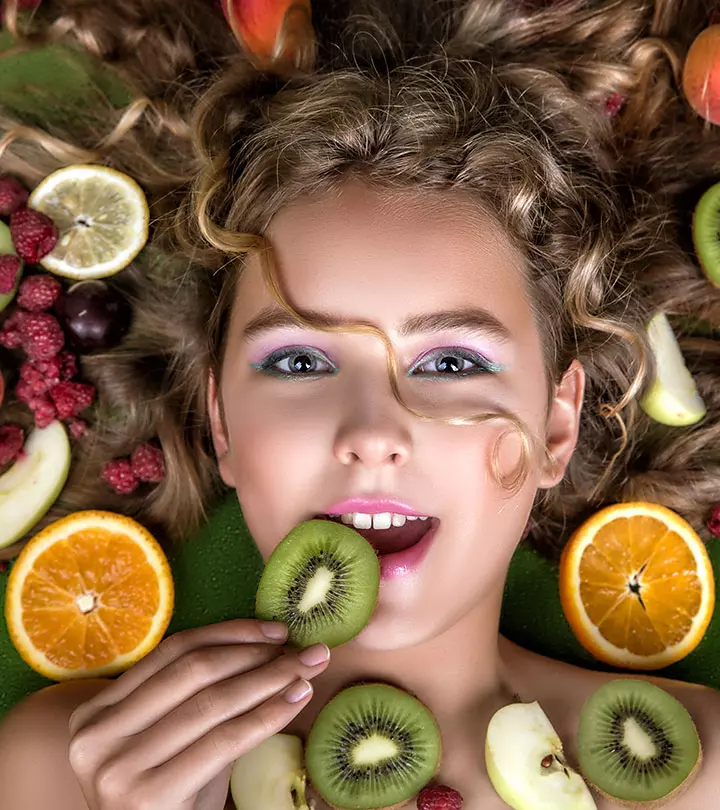
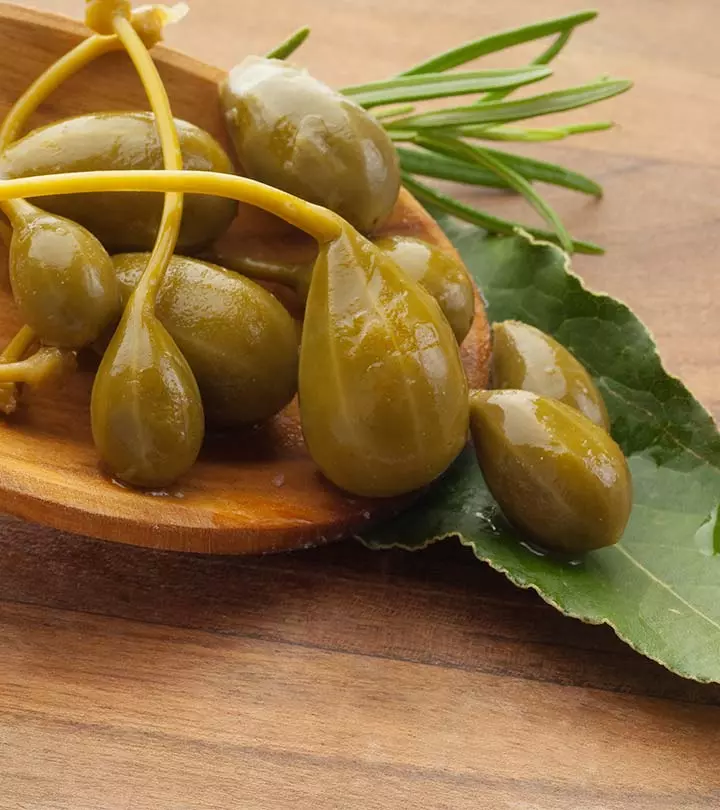



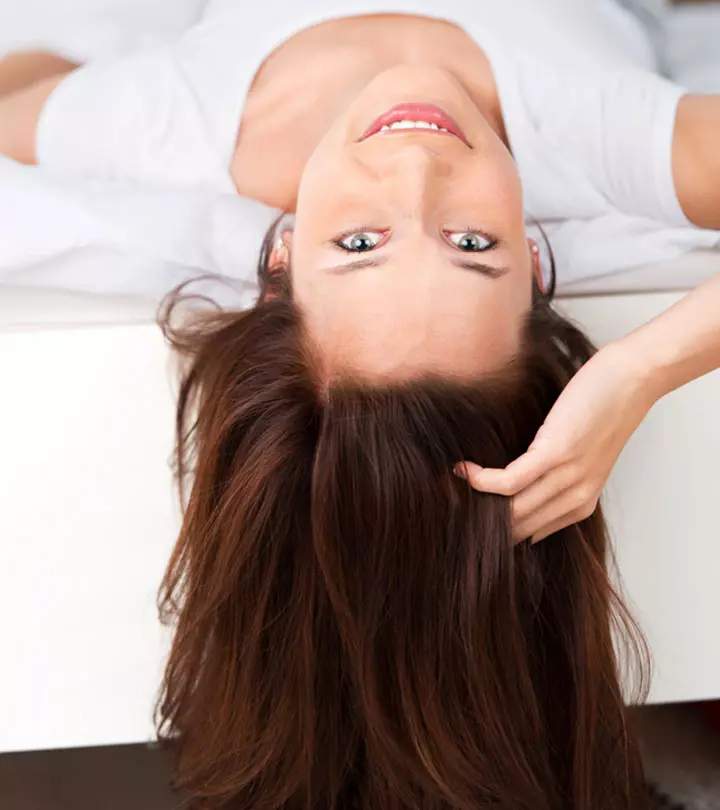

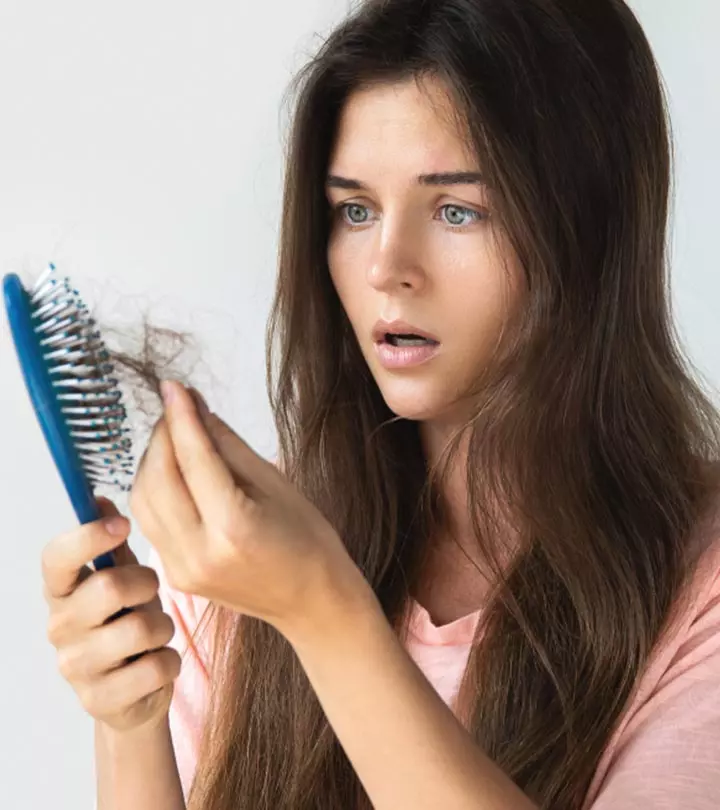
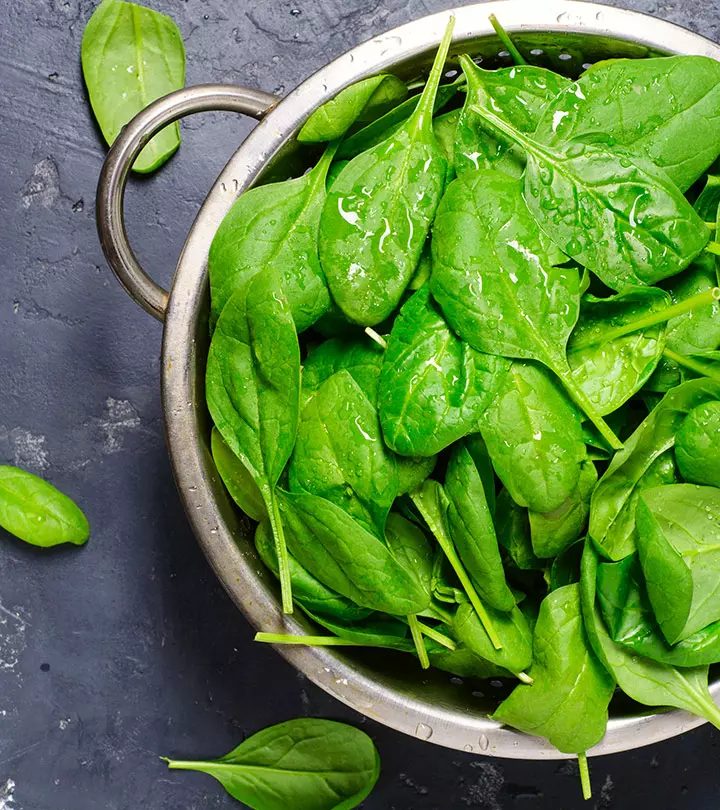
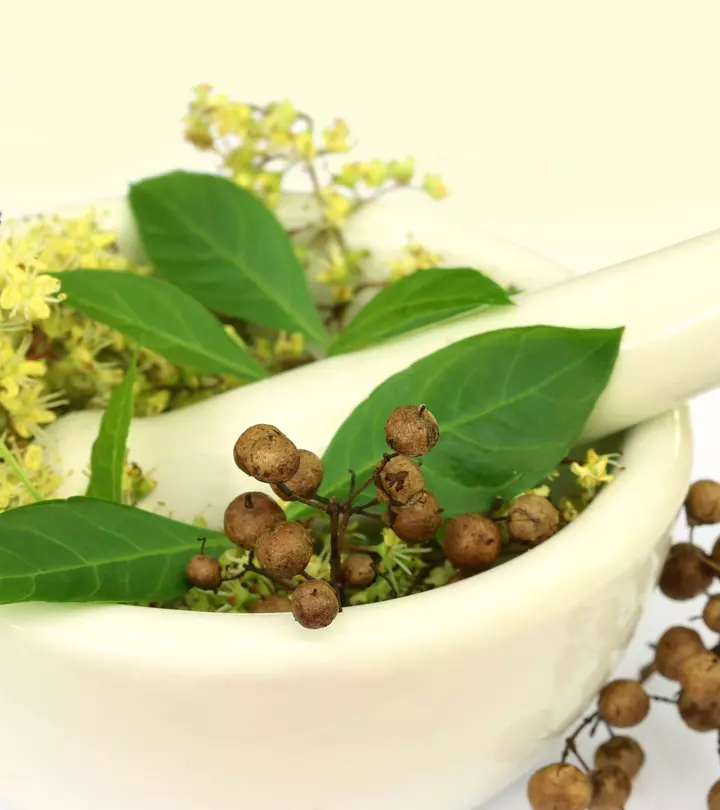

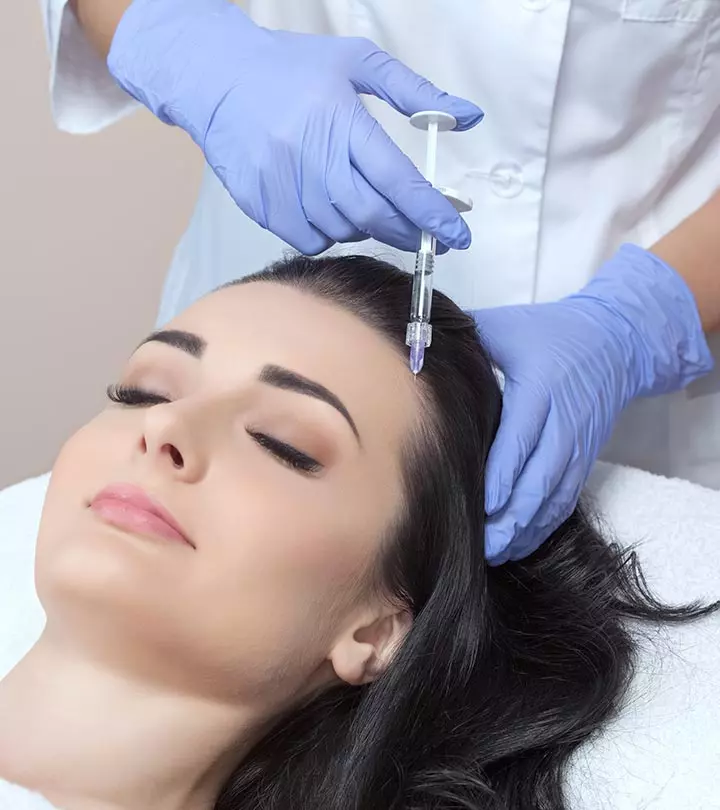
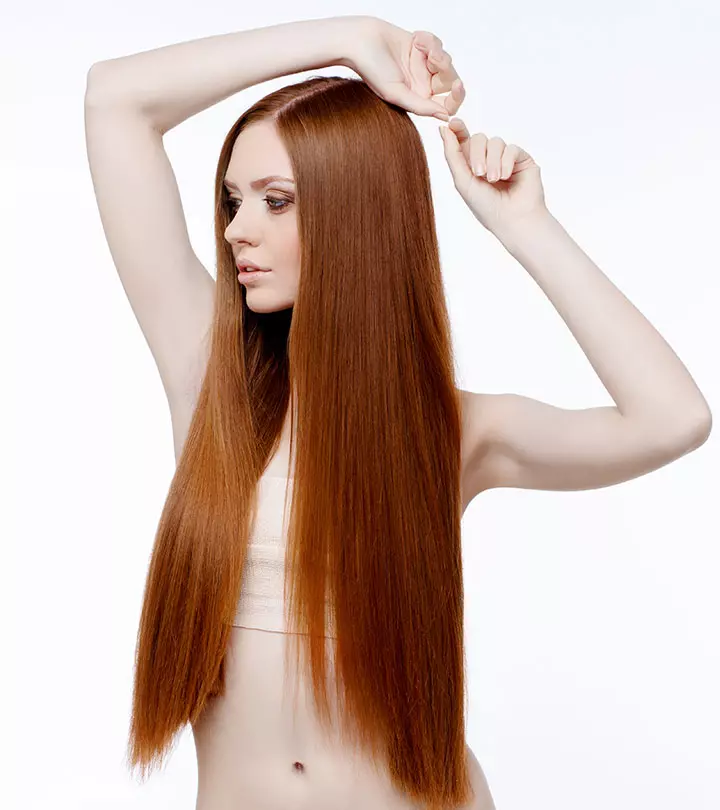

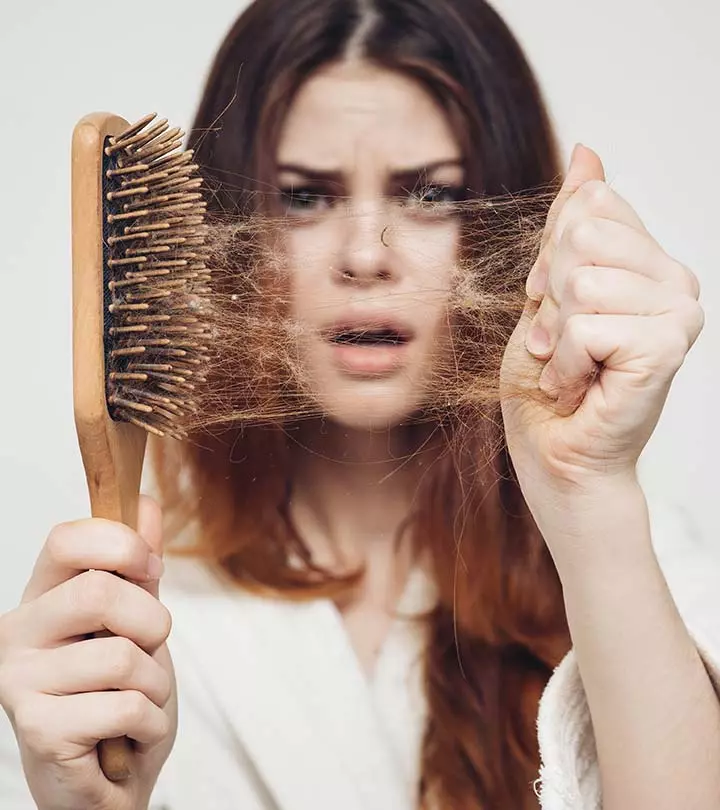


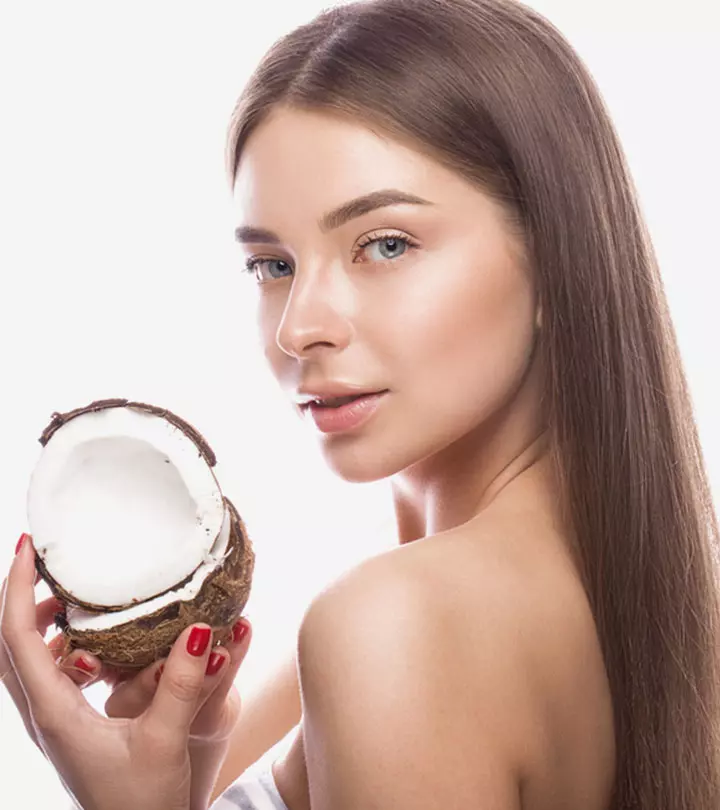
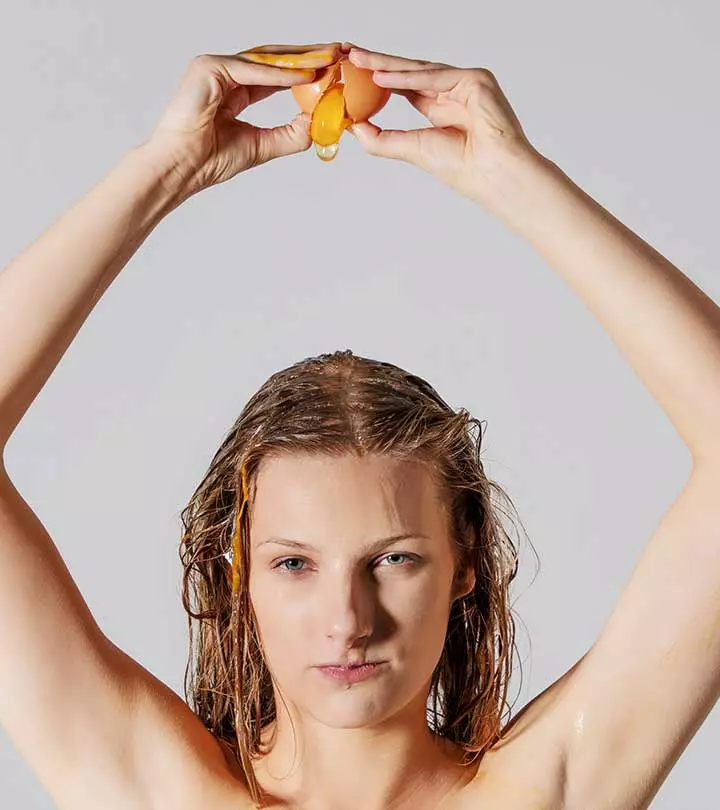
Community Experiences
Join the conversation and become a part of our empowering community! Share your stories, experiences, and insights to connect with other beauty, lifestyle, and health enthusiasts.